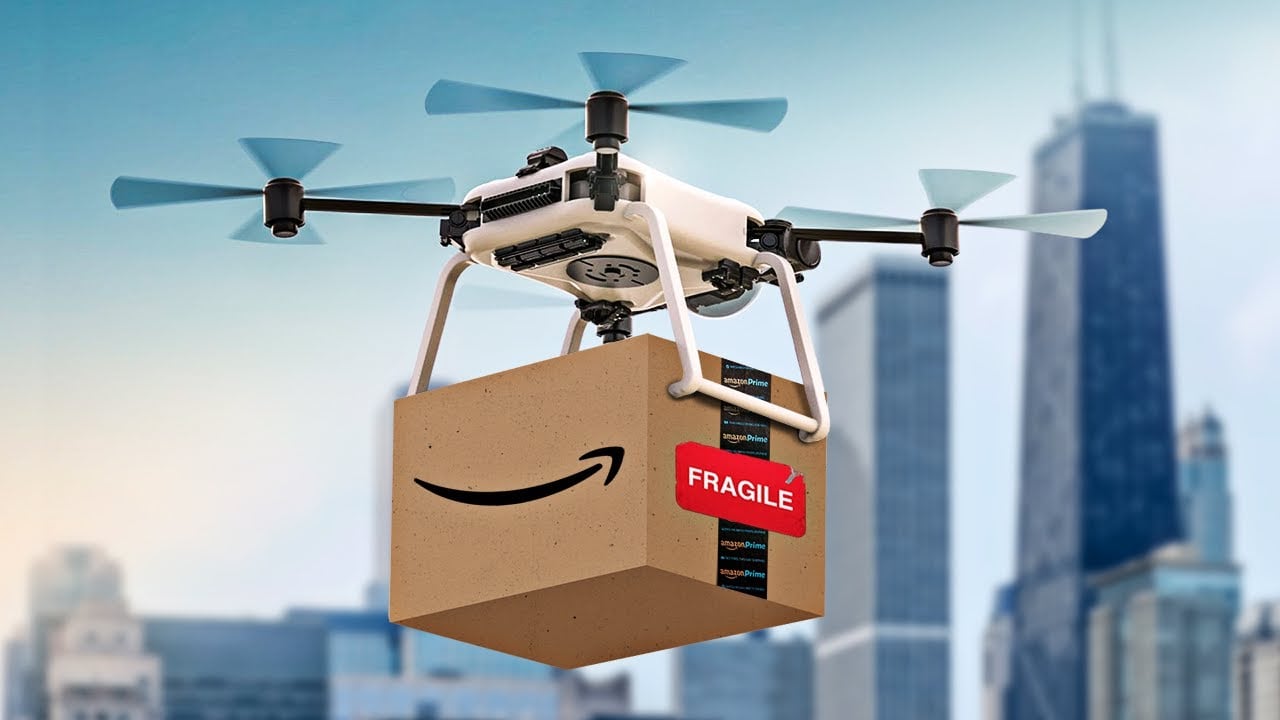Future of Transportation
Summary
The future of transportation is progressing towards cleaner fuel, less carbon releasing vehicles, smarter energy sources, developing infrastructures for transportations, automation, and driverless driving technologies. The smart transportation global market has huge potential and it is going to reach USD 121,220 Million by 2026. Top 8 future smart transportation technologies are lightweight vehicles, drones, hyperloop transportation technology, flying taxis, autonomous cars, connected cars, augmented reality, and virtual reality in transportation.
The cost of transportation and motivation for change are due to population growth, heavy traffic congestion, and the usage of fossil fuels, which emit greenhouse gases and contribute to pollution.
The invention of the wheel revolutionized the transportation sector, it started evolving from the wheel to cart, steam engines, cars, rails, and airplanes. Now in the current era, we are progressing towards electric bikes, cars, and automated vehicles. The future of transportation is rapidly changing to meet the demands of the market.
Read on to know more about market potential of smart transportation, technology, and what is the scope and potential in the transportation sector.
Major concepts that are driving the transportation sector
The future of transportation is progressing towards cleaner fuel, less carbon releasing vehicles, smarter energy sources, developing infrastructures for transportations, automation, and driverless driving technologies.
3 common themes in innovation progress on transportation sectors are:
1. Electrification
Replacing the traditional crude oil fuels such as petrol and diesel with battery vehicles, to release less carbon dioxide and less dependence on fossil fuels.
2. Smart technologies
In the next 20 years or so, transportation will bring all the smart technologies in all forms of transportation to revolutionize the sector.
3. Autonomous vehicles
Future transportation technology be it passenger vehicles or cargo transportation, it is going to self-driving autonomous vehicles technology without any dependence on human interference.
Market potential of future smart transportation technology
The smart transportation global market has huge potential and it is going to reach USD 121,220 Million by 2026 from the current market potential of USD 74990 million at 8.3% CAGR for the period 2021-26 as per the study conducted by Global opportunity analysis and Industry forecasts (Valuates reports).
The smart transportation segment is categorized into 3 segments:
Type – Road, rail, air, and Maritime
Application – Public transport, goods carrier, autonomous vehicle technology
Technolgy – Electric vehicles, magnetic levitation
The market potential is expanding exponentially in the smart transportation sector because of technological advancement, better customer experience, governments are encouraging smart transportation for nation development, more PPP models are introduced in the smart transportation sector, growing urbanization. The emergence of IoT and automation enhances smart transportation a global scale.
What will be the cost of transportation and motivation for change?
In the current era, the population growth is growing rapidly along with more towns are now becoming urban areas. To meet the growing demand of population the 100-year-old road and railway technology alone won’t suffice for the future generation. As already we are witnessing heavy traffic congestions on-road transportation and railway networks.
Because of the existing traditional transportation with a lot of congestion all over the world economies are facing hundreds of billion-dollar spending unnecessarily because of weak transportation networks. As most of the transportation networks such as rail, road, and airways not integrated properly which further elevates the spending on transportation.
The next major issue with the existing transportation is the usage of fossil fuels as it emits Greenhouse gases it affects the environment, ozone layer and increases the pollution level in cities. From the 21st century onwards we are witnessing climate change issues with increasing pollution levels. World Health Organisation (WHO) has stated that vehicle air pollution causes severe diseases and results in lots of premature deaths across the globe.
Top 8 future smart transportation technologies
1. Lightweight vehicles

Automobile manufactures are working to deliver highly efficient cars to improve vehicle performance. The research study has shown that by reducing the vehicle weight the performance can be improved to up to 10% and fuel efficiency will increase by 5-6%.
To achieve this, the car manufacturers need to replace the vehicle material from the existing iron and steel with lightweight carbon fiber or magnesium-aluminum alloy to manufacture the lightweight cars.
All the car manufacturers are working heavily to make this into reality.
2. Drones

Drone technology has revolutionized many industries from agriculture to the defense sector. Now it is progressing into the logistics and transportation sector.
Many E-commerce giants and delivery companies like Amazon, UPS, DHL are working on drone technology for last-mile delivery. Developing such drones is challenging for the manufacturers but the complete effort on R&D is going on to bring drone delivery technology into reality soon.
Companies like Amazon, UPS, DHL, etc are working to develop drones for last-mile delivery. Creating such drones is a technological challenge. Companies are working in this sector to make delivery drones a reality.
3. Hyperloop Transportation Technology

Hyperloop is an emerging transportation technology for ground transportation being developed by many companies across the world. This is a passenger caring transportation technology travel at the speed of 700 miles per hour, it will be a floating pod races inside the giant tubes under low pressure.
Hyperloop transportation technology is cheaper than the existing train and car traveling and it is also less polluting when compared to air travel. It will be a future high-speed traveling option for passengers at a cheaper cost. It is one of the best modes of travel for inter-city and intra-city with the country region.
A number of companies are working on this hyperloop transportation technology to bring it to reality. It is still in the development stage and it is expected soon for trials in some countries.
4. Flying Taxis

Flying taxis is one of the future transportation technologies that are currently being worked by Uber, one of the largest taxi companies in the world is working closely with NASA to bring the flying taxi for passengers.
The agenda of Uber is to develop the flying taxi, the machine is electrically powered and passenger flies the taxi to reach their destination.
A company based in Dubai is working on autonomous flying taxis uses electric power (Volocopter) is under the testing stage.
5. Autonomous Cars

Self-ruling autonomous cars have abandoned dreams to reality with the assistance of innovations like IoT, AI, LiDAR, and so on Preliminary attempts are being led by organizations around the world.
Organizations like Tesla (autonomous car tesla) and Waymo are the leaders of the self-governing upheaval. Gradually and step by step, individuals are getting familiar with oneself driving thing.
An independent autonomous cars is supposed to be more secure than human-driven vehicles as they can beat human blunders.
6. Hypersonic jet

Supersonic jets has a travel speed of faster than the sound speed, whereas hypersonic jets are much faster than supersonic jets.
The hypersonic jets travel at the speed of 9000 miles per hour which is equivalent to 14,400+ kilometers per hour. This speed is twelve times faster than sound.
It is said that with hypersonic jet we can reach any part of the world within one hour. It is said the travel time between Los Angles to Tokyo is within 1 hour, currently, in the normal airplane, it takes more than 11 to 13 hours.
An aviation startup named Venus Aerospace Corp is working on the Hypersonic spaceplane to make it a reality.
7. Driverless pods

The driverless pod is in the research and trial stage that is supporting the use of connected and autonomous vehicle (CAV) transportation services at public transportation hubs, privates places such as tourist places, shopping regions, medical places like hospitals, tech parks, business regions, and airports.
The driverless pod is in trial stages in London city, where the driverless pod is placed for testing purposes in Queen Elizabeth Olympic Park, the University of the West of England and Loughborough University.
8. Autonomous Trucks

Major truck manufacturers across the globe are working on autonomous trucks and vehicles. Most of them are in the trial and testing stage.
Daimler has launched the 18 wheels autonomous trucks similar to autopilot mode in the airplane, it is not a completely driverless vehicle. This vehicle maintains safe speed and maintains distances between the vehicles.
Swedish-based truck manufacturing company has come up with driverless autonomous trucks that can be controlled remotely operator.
Another UK-based company is testing the self-driving truck platoons, in order to reduce carbon emissions, safety, and improve efficiency.
Why we are evolving smart transportation for the future?
Environmental compliances and reducing the dependence on fossil fuels. As we all aware of the fact that air pollution caused by fossil fuels and their impact on the environment.
To overcome the environmental issues vehicle manufacturers should look for alternative fuel to meet guidelines and efficient vehicles.
Some of the alternative fuels for smart transportation is solar power, electricity (battery vehicle), hydrogen, natural gas, agricultural waste, and lot more. These fuels are cheaper and effective for vehicles without harming the environment.
Future transportation vehicles will be on electric vehicles with no noise, zero pollution and cost-effective for users.
Future of GPS devices?
In all smart transportation technology, the role of GPS is inevitable and completely relies GPS data. Be it flying taxis, hyperloop, supersonic jet, autonomous vehicles technology all need GPS navigation and technology for smooth vehicle operation.
In near future, GPS technology will be an integral part of all transportation vehicles and it has a huge role to play in future transportation.
What will happen to present-day transportation?
It is believed that the individual ownership of the vehicle will be reduced in the future and people all over the world will rely on public transportation and paid taxis.
Already in the developed economies, it is very much evident that people are progressing towards public and paid private transportation, especially in countries like USA and Canada.
Be prepared for the transportation mobility revolution
Future transportation follows these principles – zero-emission, zero accidents, and zero ownership.
Already the revolution has started in the transportation sector with the evolution of IoT, alternate fuel to fossil fuel, Big data analytics all support smart transportation.
Be ready and prepare for the smart future.


